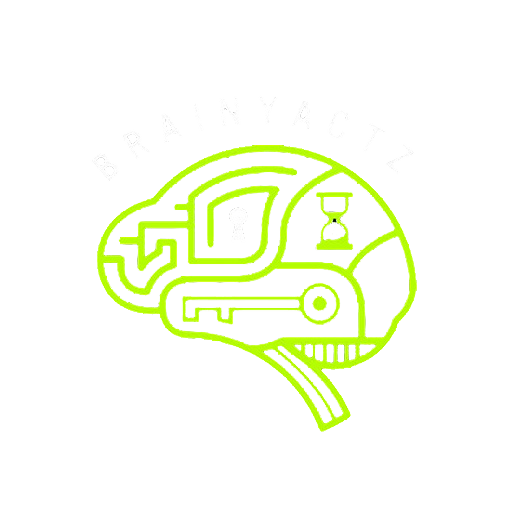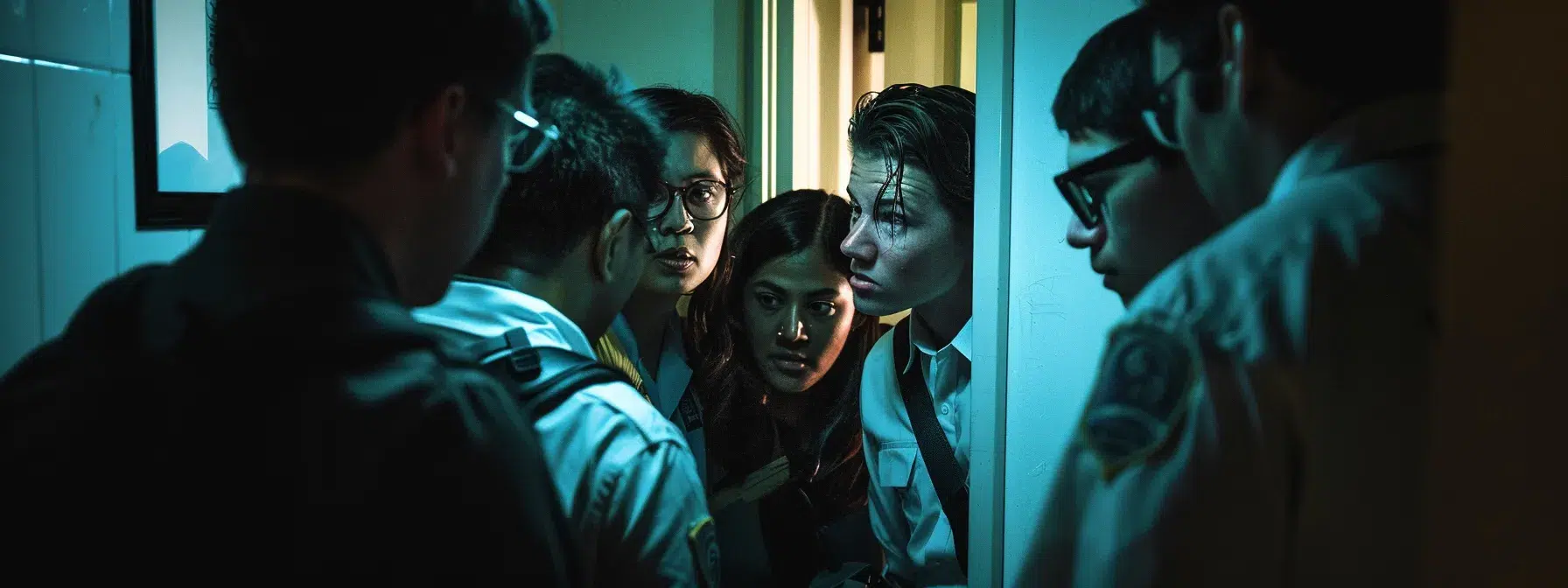Escape rooms are a popular choice for corporate team-building activities. They offer a fun and challenging experience that promotes teamwork, communication, and problem-solving. In these immersive scenarios, teams work together to solve puzzles and complete objectives within a time limit.
Participating in these dynamic environments encourages employees to think creatively and collaboratively, stepping out of their comfort zones. This provides a break from the daily routine and helps build stronger, more cohesive teams that are better equipped to handle workplace challenges.
Escape rooms boost morale, enhance critical thinking skills, and provide valuable lessons for team development.
Key Takeaways
- Escape Room Activities Bolster Team Unity and Improve Problem-Solving Through Immersive Challenges.
- Analyzing Escape Room Outcomes Can Provide Valuable Insights for Enhancing Workplace Dynamics and Communication.
- Virtual Escape Rooms Offer a Unique Way to Engage Remote Teams and Foster Collaborative Spirit.
- Post-Event Reflections and Feedback Are Essential for Assessing the Effectiveness of Team-Building Activities.
- Escape Rooms Combined With Workshops or Seminars Can Deepen the Learning Experience and Apply It to Professional Growth
Choosing the Best Escape Room Games for Team Building

A good starting point is to assess the team’s goals and the range of skills across the workforce.
Companies will want to pinpoint the challenge level that won’t overwhelm yet still provides a sense of thrill.
Themes are another coin to flip since they should resonate with the company ethos and spark meaningful conversation after the escape.
Lastly, engaging with customer feedback offers invaluable insights, revealing which games have a track record of fortifying workplace bonds through team-building adventures.
Evaluate Team Objectives and Skills
When planning an escape room event, evaluate your team’s objectives and skills. Identify what you want to achieve, whether it’s improving communication, fostering creativity, or building trust. Understanding your team’s strengths and weaknesses will help you choose the right escape room and tailor the experience to meet your goals. This initial assessment ensures that the activity is both relevant and beneficial for your team.
Consider the Level of Difficulty
Select an escape room with a level of difficulty that matches your team’s capabilities. If the challenge is too easy, it won’t be engaging; if it’s too hard, it could be frustrating. Aim for a balance that keeps everyone interested and motivated. A well-chosen difficulty level ensures that all team members can contribute effectively, promoting a sense of accomplishment and confidence.
Look for Themes That Align With Your Company’s Culture
Choose an escape room theme that aligns with your company’s culture and values. Whether it’s a high-stakes heist or a mystical adventure, the theme should resonate with your team and reflect your organizational spirit. This alignment helps create a cohesive experience that reinforces your company’s identity and values. It also makes the activity more relatable and enjoyable for participants.
How to Prepare Your Team for an Escape Room Challenge

Preparing for an escape room adventure demands a unique combination of preparation and mindset.
It starts with a thorough briefing to ensure every team member knows what lies ahead in this electrifying scavenger hunt-style experience.
Success hinges on tapping into the group’s diverse language of strengths and weaknesses, assigning roles that allow each individual to shine.
Clear, effective communication will be the team’s lifeline, enabling them to navigate puzzles with precision and synergy.
Finally, fostering an atmosphere where positivity and resilience are the norms can propel a team towards peak productivity, transforming their escape room endeavor into a tool for genuine growth and unity.
Brief Your Team on What to Expect
Before the event, brief your team on what to expect from the escape room experience. Provide an overview of the challenges, the importance of teamwork, and the activity’s objectives. Clear communication about what lies ahead helps manage expectations and prepares everyone for the experience. This preparation ensures that participants are mentally ready and can fully engage in the activity.
Assign Roles Based on Strengths and Weaknesses
Assign roles within the escape room based on each team member’s strengths and weaknesses. Identify who excels in leadership, who is great at problem-solving, and who can keep track of time. This strategic role assignment leverages individual talents and ensures that everyone has a chance to shine. By playing to each person’s strengths, you can enhance the team’s overall performance and cohesion.
Teach Effective Communication Strategies
Teach your team effective communication strategies before entering the escape room. Emphasize the importance of clear, concise communication and active listening. Encourage team members to share their ideas and listen to others. Good communication is crucial for success in escape rooms and translates to better teamwork in the workplace. Practicing these skills in a fun setting helps reinforce their importance.
Encourage a Positive Mindset and Resilience
Encourage your team to maintain a positive mindset and resilience throughout the escape room challenge. Remind them that setbacks are part of the process and that perseverance is key to success. A positive attitude helps keep morale high and motivates everyone to keep trying, even when faced with difficult puzzles. This resilience is valuable not only in escape rooms but also in everyday work situations.
Integrating Escape Room Activities Into Your Corporate Events

When the last puzzle is solved, and the adrenaline subsides, the value of escape room activities in corporate settings continues to unfold beyond the four walls of the escape scenario.
Imaginatively pairing escape rooms with workshops or seminars turns a thrilling murder mystery game into a catalyst for deeper learning, enveloping customer service training or leadership development within a memorable framework.
Businesses use the vivid memory of a shared escape room triumph as a discussion springboard, cementing the group’s collaborative achievements.
By following up with thoughtfully scheduled debriefing sessions, teams are encouraged to reflect on their learning outcomes, ensuring the takeaways are not just ephemeral but become woven into the fabric of their professional growth.
Pair Escape Rooms With Workshops or Seminars
Pair your escape room experience with workshops or seminars to enhance its impact. These additional sessions can provide deeper insights into the skills and behaviors observed during the escape room and offer further training and development opportunities. Combining escape rooms with educational components creates a comprehensive team-building program that maximizes learning and growth.
- Informal and lively debates replace conventional seminar formats, drawing parallels from the teamwork experienced in game scenarios.
- Colleagues translate escape room collaboration into dynamic group discussions during seminars.
- Escape room successes energize participants to tackle traditional paper-based strategy exercises with vigor.
- Team-based victories in escape scenarios set the stage for management workshops, where each member’s voice counts.
- Physical props like index cards become tools for mapping out improved workflows, inspired by in-game puzzle solving.
Use Escape Rooms as a Launchpad for Discussion
Use the escape room experience as a launchpad to discuss teamwork and problem-solving. After the activity, gather your team to reflect on what they learned and how they can apply these insights in the workplace. This debriefing session encourages open communication and helps reinforce the lessons learned. It also provides an opportunity to address any challenges faced during the activity.
- Engineers translate puzzle-solving precision into efficient problem-solving discussions.
- Marketers leverage teamwork from the quiz-based escape challenge to enhance campaign collaboration.
- Executives reflect on their whodunit experiences to boost strategic decision-making in the workplace.
- Personality test revelations during the escape room deconstruction foster deeper understanding and role clarity within teams.
Schedule Debriefing Sessions to Reflect on Learning Outcomes
Schedule debriefing sessions after the escape room event to reflect on learning outcomes. Discuss what went well, what could be improved, and how the team can apply these lessons in their work. This reflection helps solidify the skills and insights gained from the activity. It also promotes continuous improvement and ensures that the benefits of the escape room experience are long-lasting.
Benefits of Escape Room Activities for Corporate Teams

As corporate teams hover over the common goal of improving synergy, escape room activities inflate creativity like a balloon ready to soar.
These immersive adventures propel problem-solving and critical thinking to new heights, as collaborative buzz infuses the room like the hum of technology at work.
Participants learn to untie the knot of conventional approaches, embracing new dynamics that cement stronger bonds and uplift team morale.
In the puzzle-laden corridors of escape rooms, the spark of creativity ignites innovation, transforming how teams tackle challenges together.
Enhances Problem-Solving and Critical Thinking
Escape rooms enhance problem-solving and critical thinking skills by presenting complex challenges that require strategic thinking. Participants must analyze clues, identify patterns, and develop creative solutions. This hands-on experience sharpens cognitive skills that are essential in the workplace. Regular participation in such activities can lead to improved performance and innovation.
Strengthens Team Bonding and Morale
Escape rooms strengthen team bonding and boost morale by providing a fun, shared experience. Working together to solve puzzles fosters camaraderie and mutual respect. The sense of achievement from completing the challenge creates a positive atmosphere that carries over into the workplace. This strengthened bond enhances teamwork and overall job satisfaction.
Boosts Creativity and Innovation Within Teams
Escape rooms boost creativity and innovation by encouraging participants to think outside the box. The diverse puzzles and scenarios stimulate creative thinking and problem-solving. This environment fosters a culture of innovation that can be transferred to the workplace. Teams regularly engaging in creative activities are more likely to develop novel solutions to business challenges.
Post-Event Analysis: Maximizing the Learning Experience

After the thrill of the escape room experience and the teams have had their share of laughter, it’s time to break down the event to understand its full impact.
Gathering feedback from participants provides a treasure trove of insights into how effectively the activity served its purpose as a team-building tool.
Analyzing team performance and dynamics reveals where members excel and which areas can benefit from further development.
By identifying these aspects, companies can foster an environment that encourages thinking outside the box, not only during the event but as a continuous improvement for future applications.
Gather Feedback From Participants
After the escape room event, gather participant feedback to understand their experiences and insights. Use surveys or group discussions to collect their thoughts on what worked well and what could be improved. This feedback is valuable for planning future team-building activities and ensuring they meet your team’s needs. It also shows that you value their input and are committed to continuous improvement.
Analyze Team Performance and Dynamics
Analyze team performance and dynamics during the escape room to identify strengths and areas for improvement. Observe how team members interact, make decisions, and solve problems. This analysis provides valuable insights into team dynamics and individual contributions. These observations inform future training and development efforts, enhancing overall team effectiveness.
- Escape room exposes the raw truth of interpersonal dynamics under stress.
- Challenges in the exercise reveal the team’s communication efficiency, akin to a game of ‘telephone’.
- Analysis provides insights for strengthening trust and curbing misinformation, like detecting a ‘lie’.
Identify Areas for Improvement and Future Applications
Based on the escape room experience, identify areas for improvement and future applications. Use the insights gained to address any weaknesses and reinforce strengths within your team. This proactive approach ensures continuous growth and development. Applying these lessons in the workplace can lead to better performance, higher morale, and a more cohesive team.
Conclusion
Escape room corporate team-building activities fuse excitement with practical skills development, setting the stage for enhanced problem-solving and critical thinking under pressure.
The shared adventures bolster team cohesion and morale, creating a lasting sense of unity and collaborative spirit amongst colleagues.
Insights gained from these experiences can reveal strengths and pinpoint areas for growth, sparking innovation and driving professional development.
Ultimately, escape room challenges provide a unique, immersive opportunity to fortify workplace dynamics and foster an environment conducive to success.

